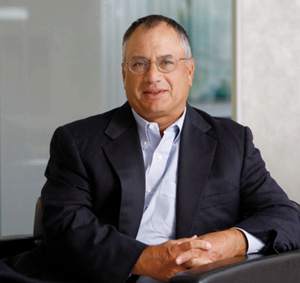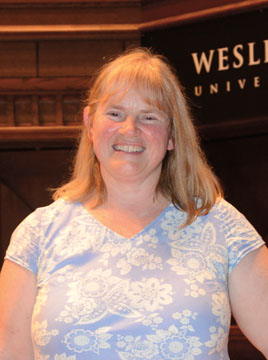The Friend Is More Important Than the Ask
The phone rings and it’s a classmate–maybe a close friend or maybe someone you barely knew who was in your philosophy class–asking you to contribute to the Wesleyan Annual Fund.
Sometimes this happens when you are in the middle of dinner, or checking your children’s homework, or relaxing with a book or television.
Most of us hate being asked for money. Even more, we hate asking other people for money. We learned as kids that it’s impolite to ask for a gift.
But this call is different: the person on the other end of your phone is asking for something we all value–support for Wesleyan.
When I first asked my friend Gordon for a WAF contribution many years ago, I was surprised to learn that some people even thank you for asking. If all goes well, WAF callers are performing a service–making it easier for friends and classmates to do what they were planning to do anyway.
Sometimes, however, this exchange doesn’t work perfectly. I’ll share my own story of two “asks” that I made recently, one successful and one that I wish I had handled differently.
I contacted two friends from my freshman year to seek support for WAF and/or the campaign. I have known them since my very first days on campus. Both have supported Wesleyan in the past.
Glen was my freshman roommate. We still speak a couple of times each week, 25 years later. I don’t approach Glen in a formal way when it’s time to ask for an annual commitment. During a regular conversation, I let him know that I want to discuss his contribution. We talk about other things as well (kids, the Lakers), and if he doesn’t have time, I call him back to talk about money. Since we know each other very well, I tell him what my own commitment is and why it’s at that level this year. I am comfortable suggesting what I think he should do. This year, Glen talked it over with his wife, said yes, and followed up to let me know when he completed his pledge. There is nothing forced and no pressure, though I am direct about my intentions and my expectations.
Asking the other friend was more complicated. Though we’ve remained close, we are not in touch as often. A while back, I wrote several friends, including this person, and asked each to consider supporting Wesleyan. He called me at home and said he wanted to make a contribution. But I neglected to follow up and finalize his commitment. The longer I waited, the more awkward it became. I felt as though I’d been both a bad friend and done a bad job for Wesleyan. The next time we saw each other–and greeted each other warmly–I rushed to ask about WAF, rather than first catch up on our friendship. I made a mistake; I pressed the task (solicitation), putting it before just catching up with my friend. Despite my awkwardness, my friend continues to support the university.
For those who make WAF calls, please remember: When you ask a friend to support Wesleyan, the friend is more important than the ask. The easier the conversation goes, the more likely you will both feel good and be successful in your task. You have to be direct, and you have to pick up the phone and ask, but remember that we are offering our friends the opportunity to support Wesleyan, not selling long-distance phone service.
For those who get a call from a WAF volunteer this year, please ask the caller why he or she volunteers for Wesleyan. Chances are, it’s the same reason you took the call: she or he cares about Wesleyan.
Asking friends to support Wesleyan is critical to the future of the university. All of us support Wesleyan because we care about making sure the opportunity for a liberal arts education exists for future generations. Whatever our ability to give, that’s something we share.
David Bartholomew ’81, Chair
dbartholomew@wesleyan.edu


